Celebrating its eleventh consecutive year of honoring literature in translation, the Best Translated Book Awards is pleased to announce the 2018 longlists for both fiction and poetry (we announced the 2017 and 2016 winners here at the site).
Announced here and at Three Percent, the lists include a diverse range of authors, languages, countries, and publishers. It features an array of notable presses—Ugly Duckling Presse, Black Ocean, Action, White Pines—along with previously nominated translators (Johannes Göransson appears for the second year in a row) and some new names, such as former BTBA judge, Katrine Øgaard Jensen. Combined, the longlists reflect the diversity of international books published last year by featuring authors from twenty-five different countries, writing in eighteen languages, and published by twenty-six different presses. New Directions and Seagull Books are the only presses to have titles on both longlists, with Feminist Press, New Directions, Open Letter, and Ugly Duckling Presse receiving the most nominations, with three longlisted titles each.
Thanks to grant funds from the Amazon Literary Partnership, the winning authors and translators will each receive $5,000 cash prizes. Three Percent at the University of Rochester founded the BTBAs in 2008, and over the past seven years, the Amazon Literary Partnership has contributed more than $140,000 to international authors and their translators through the BTBA.
The finalists for both the fiction and poetry awards will be announced here at The Millions on Tuesday, May 15, and the winners will be announced on Thursday, May 31 as part of the New York Rights Fair, following the 4:30 panel on “Translated Literature Today: A Decade of Growth.”
This year’s fiction jury is made up of: Caitlin Baker (University Book Store, Seattle), Kasia Bartoszyńska (Monmouth College), Tara Cheesman-Olmsted (Reader at Large), Lori Feathers (Interabang Books), Mark Haber (writer, Brazos Bookstore), Adam Hetherington (author), Jeremy Keng (reader, freelance reviewer), Bradley Schmidt (translator), and P.T. Smith (Ebenezer Books, The Scofield). The poetry jury includes: Raluca Albu (BOMB), Jarrod Annis (Greenlight Bookstore), Tess Lewis (writer and translator), Aditi Machado (poet and translator), and Emma Ramadan (translator, Riffraff Bookstore).
For more information, visit the official Best Translated Book Award site and the official BTBA Facebook page, and follow the award on Twitter. Over the next month, leading up to the announcement of the shortlists, Three Percent will be featuring a different title each day as part of the “Why This Book Should Win” series.
Best Translated Book Award 2018: Fiction Longlist
Incest by Christine Angot, translated from the French by Tess Lewis (France, Archipelago)
Suzanne by Anaïs Barbeau-Lavalette, translated from the French by Rhonda Mullins (Canada, Coach House)
Tómas Jónsson, Bestseller by Guðbergur Bergsson, translated from the Icelandic by Lytton Smith (Iceland, Open Letter Books)
Compass by Mathias Énard, translated from the French by Charlotte Mandell (France, New Directions)
Bergeners by Tomas Espedal, translated from the Norwegian by James Anderson (Norway, Seagull Books)
The Invented Part by Rodrigo Fresán, translated from the Spanish by Will Vanderhyden (Argentina, Open Letter Books)
Return to the Dark Valley by Santiago Gamboa, translated from the Spanish by Howard Curtis (Colombia, Europa Editions)
Affections by Rodrigo Hasbún, translated from the Spanish by Sophie Hughes (Bolivia, Simon and Schuster)a
Old Rendering Plant by Wolfgang Hilbig, translated from the German by Isabel Fargo Cole (Germany, Two Lines Press)
I Am the Brother of XX by Fleur Jaeggy, translated from the Italian by Gini Alhadeff (Switzerland, New Directions)
You Should Have Left by Daniel Kehlmann, translated from the German by Ross Benjamin (Germany, Pantheon)
Chasing the King of Hearts by Hanna Krall, translated from the Polish by Philip Boehm (Poland, Feminist Press)
Beyond the Rice Fields by Naivo, translated from the French by Allison M. Charette (Madagascar, Restless Books)
My Heart Hemmed In by Marie NDiaye, translated from the French by Jordan Stump (France, Two Lines Press)
Savage Theories by Pola Oloixarac, translated from the Spanish by Roy Kesey (Argentina, Soho Press)
August by Romina Paula, translated from the Spanish by Jennifer Croft (Argentina, Feminist Press)
The Magician of Vienna by Sergio Pitol, translated from the Spanish by George Henson (Mexico, Deep Vellum)
The Iliac Crest by Cristina Rivera Garza, translated from the Spanish by Sarah Booker (Mexico, Feminist Press)
Fever Dream by Samanta Schweblin, translated from the Spanish by Megan McDowell (Argentina, Riverhead)
Ghachar Ghochar by Vivek Shanbhag, translated from the Kannada by Srinath Perur (India, Penguin)
For Isabel: A Mandala by Antonio Tabucchi, translated from the Italian by Elizabeth Harris (Italy, Archipelago)
Ebola ’76 by Amir Tag Elsir, translated from the Arabic by Charis Bredin (Sudan, Darf Publishers)
The Last Bell by Johannes Urzidil, translated from the German by David Burnett (Germany, Pushkin Press)
Radiant Terminus by Antoine Volodine, translated from the French by Jeffery Zuckerman (France, Open Letter Books)
Remains of Life by Wu He, translated from the Chinese by Michael Berry (Taiwan, Columbia University Press)
Best Translated Book Award 2018: Poetry Longlist
Adrenalin by Ghayath Almadhoun, translated from the Arabic by Catherine Cobham (Syria, Action Books)
Hackers by Aase Berg, translated from the Swedish by Johannes Goransson (Sweden, Black Ocean Press)
Paraguayan Sea by Wilson Bueno, translated from the Portunhol and Guarani to Frenglish and Guarani by Erin Moore (Brazil, Nightboat Books)
Things That Happen by Bhaskar Chakrabarti, translated from the Bengali by Arunava Sinha (India, Seagull Books)
I Remember Nightfall by Marosa di Giorgio, translated from the Spanish by Jeannine Marie Pitas (Uruguay, Ugly Duckling Presse)
Astroecology by Johannes Heldén, translated from the Swedish by Kirkwood Adams, Elizabeth Clark Wessel, and Johannes Heldén (Sweden, Argos Books)
Magnetic Point by Ryszard Krynicki translated from the Polish by Clare Cavanagh (Poland, New Directions)
Third-Millennium Heart by Ursula Andjaer Olsen, translated from the Danish by Katrine Øgaard Jensen (Denmark, Broken Dimanche Press)
Spiral Staircase by Hirato Renkichi, translated from the Japanese by Sho Sugita (Japan, Ugly Duckling Presse)
Directions for Use by Ana Ristovic, translated from the Serbian by Steven Teref and
Maja Teref (Serbia, Zephyr Press)
Before Lyricism by Eleni Vakalo, translated from the Greek by Karen Emmerich (Greece, Ugly Duckling)
Iron Moon by Chinese Migrant Worker Poetry edited by Qin Xiaoyu, translated from the Chinese by Eleanor Goodman (China, White Pine Press)
Image: Flickr
The post Announcing the 2018 BTBA Longlists for Fiction and Poetry appeared first on The Millions.
from The Millions https://ift.tt/2qmwiZo
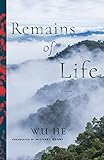










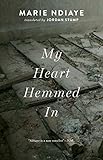




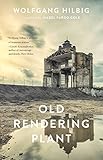

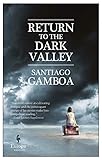




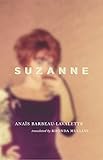




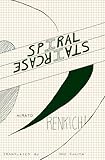






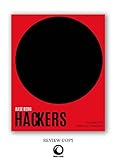

Comments
Post a Comment